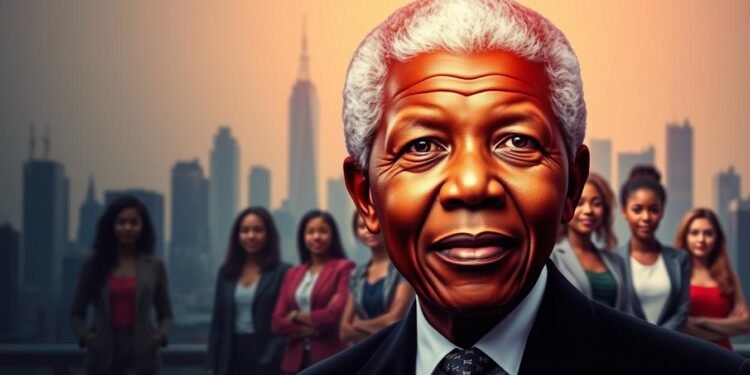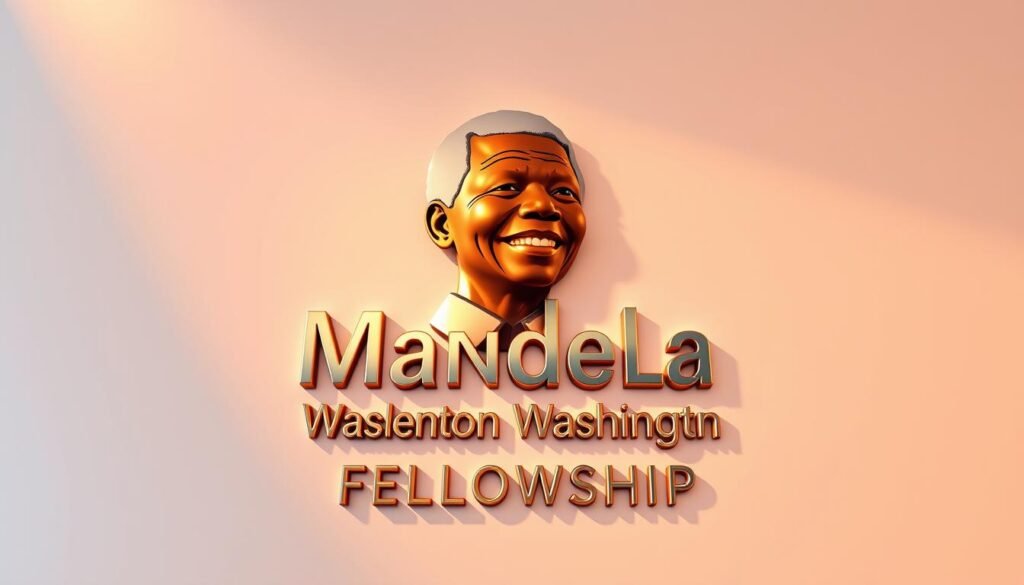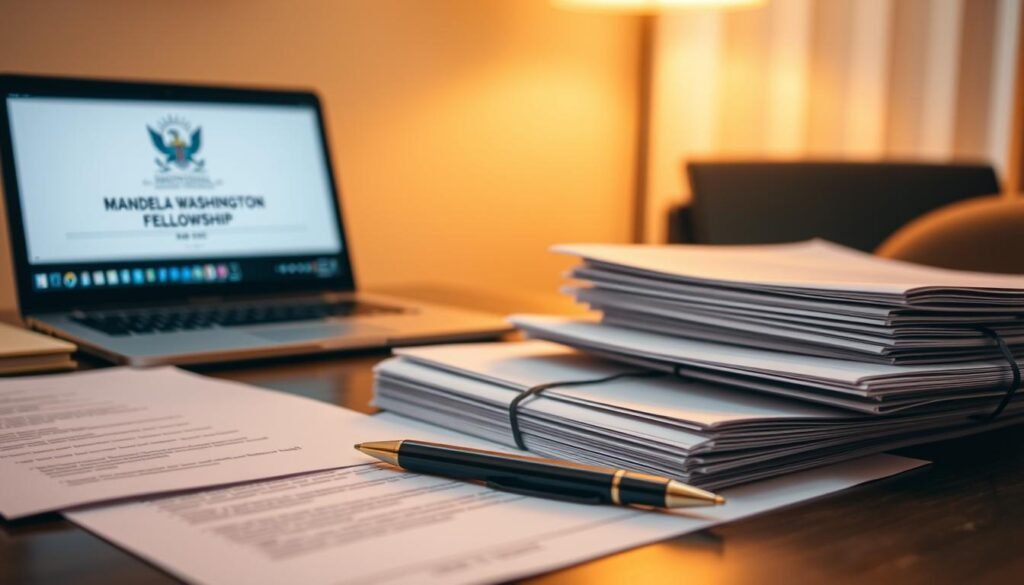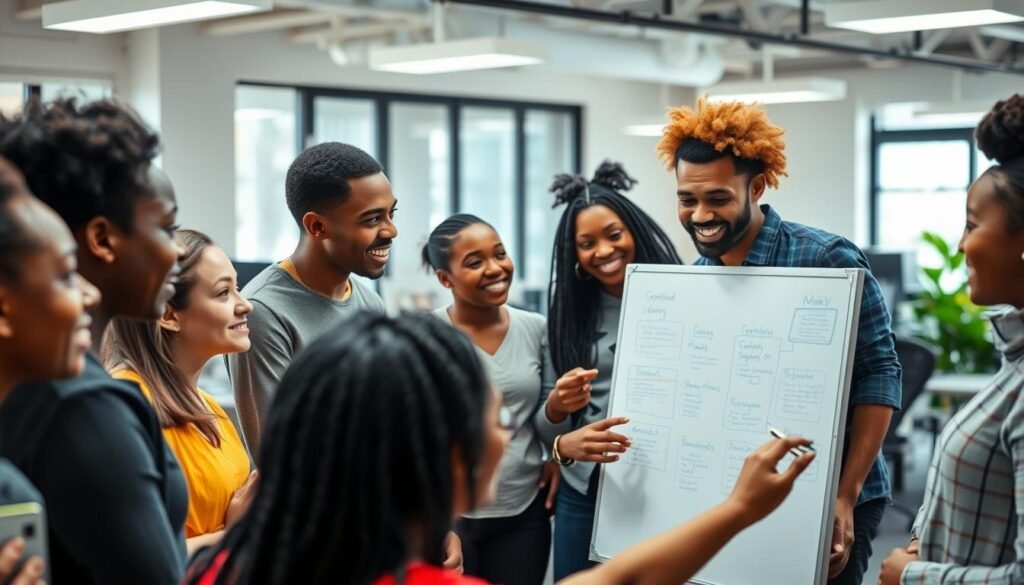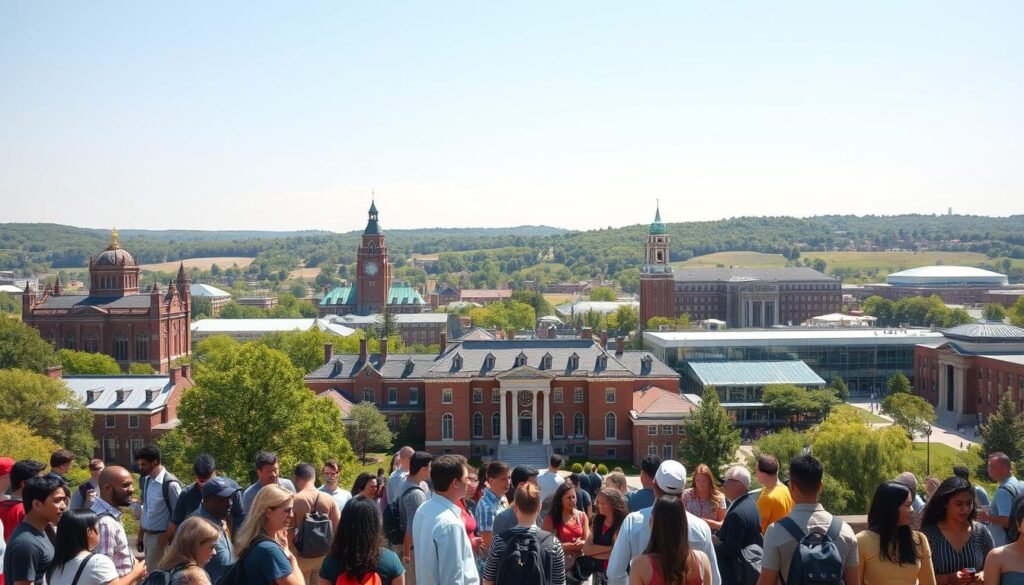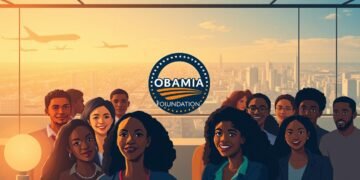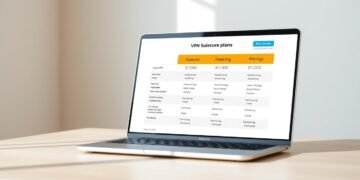What does it take to empower the next generation of leaders in Africa? The Mandela Washington Fellowship, the flagship program of the Young African Leaders Initiative (YALI), offers a transformative answer. Administered by IREX and funded by the U.S. Government, this initiative has been shaping the future of young African leaders since 2014.
With a presence in 49 Sub-Saharan African countries, the program has already impacted over 7,200 alumni. In 2025, 26 U.S. institutions will host 650 Fellows, fostering leadership skills and cross-cultural collaboration. The U.S. Department of State partnership ensures the program’s reach and effectiveness, while Fellows contribute over 87,000 community service hours and engage with 2,400+ U.S. organizations.
One inspiring success story is Amadou Abdou Mahamadou Salissou, the 2025 Catalyst Grant winner. His journey exemplifies the program’s mission to create impactful change. Whether you’re curious about leadership development or global collaboration, the fellowship young African leaders is a beacon of opportunity.
Key Takeaways
- The Mandela Washington Fellowship is the flagship program of YALI.
- It is administered by IREX with U.S. Government funding.
- The program operates across 49 Sub-Saharan African countries.
- Over 7,200 alumni have been part of the initiative since 2014.
- In 2025, 26 U.S. institutions will host 650 Fellows.
- Fellows contribute over 87,000 community service hours.
- Amadou Abdou Mahamadou Salissou is a notable success story.
Introduction to the Mandela Washington Fellowship
Leadership development in Africa has found a powerful ally in a transformative initiative. Launched in 2014 as part of the Young African Leaders Initiative (YALI), the Mandela Washington Fellowship aims to strengthen ties between the U.S. and Sub-Saharan Africa. This program, funded by the U.S. Government, empowers young African leaders aged 25-35 through academic coursework, leadership training, and networking opportunities.
The program’s goals are clear: foster innovation, collaboration, and professional growth. Participants engage in Leadership Institutes, attend a Summit, and take part in Professional Development Experiences (PDEs). These components are designed to equip leaders with the skills needed to drive change in their communities.
In 2025, the next cohort of Fellows will arrive in the U.S., marking another milestone in the program’s history. Applications for the 2026 PDE and Reciprocal Exchange programs are already open, offering even more opportunities for collaboration and growth.
Aligned with U.S. foreign policy objectives, the initiative continues to build bridges between nations. By investing in the next generation of leaders, the program not only impacts individuals but also strengthens global partnerships.
What is the Mandela Washington Fellowship?
How can young leaders from Sub-Saharan Africa gain global leadership skills? The Mandela Washington Fellowship offers a six-week Leadership Institute at U.S. colleges, followed by optional Professional Development Experiences (PDEs) and Reciprocal Exchanges. This program, supported by the U.S. Department, focuses on three academic tracks: Business, Civic Engagement, and Public Management.
Each track is designed to equip participants with specialized skills. Business Fellows learn entrepreneurship and economic development. Civic Engagement participants focus on community leadership. Public Management Fellows gain insights into governance and policy-making.
After the Leadership Institute, Fellows attend a Summit in Washington, D.C. This event connects them with U.S. leaders and peers, fostering collaboration and networking. The Summit is a platform for sharing ideas and building partnerships.
For those seeking further experience, the PDE offers a four-week placement with U.S. organizations. These include nonprofits, businesses, and government agencies. In 2026, Reciprocal Exchange opportunities will allow U.S. professionals to collaborate with Fellows in Africa.
Eligibility for the program is specific. Applicants must be from Sub-Saharan Africa, aged 25-35, and proficient in English. U.S. citizens and permanent residents are not eligible. This ensures the program remains focused on its mission of empowering African leaders.
Eligibility Criteria for the Mandela Washington Fellowship
Who qualifies to join this transformative leadership program? The Mandela Washington Fellowship has specific requirements to ensure it selects the most dedicated and capable individuals. These criteria focus on age, citizenship, residency, and language proficiency.
Age Requirements
Applicants must be between 25 and 35 years old at the time of application. However, exceptional candidates aged 21 to 24 may also be considered. This flexibility allows the program to identify promising leaders who show early potential.
Citizenship and Residency
To be eligible, applicants must be citizens or residents of Sub-Saharan African countries. Dual citizenship with the U.S. is not permitted, and candidates must meet J-1 visa eligibility requirements. Proof of residency in an eligible country is mandatory at the time of application.
Language Proficiency
Fluency in English is essential, as the program involves intensive training and collaboration with U.S. organizations. Deaf applicants are encouraged to review special instructions to ensure their needs are accommodated. This ensures inclusivity while maintaining program standards.
Certain restrictions apply. U.S. Government employees and alumni of the program are not eligible to apply. These rules help maintain the program’s focus on empowering new young African leaders and fostering cross-cultural exchange.
How to Apply for the Mandela Washington Fellowship
Are you ready to take the next step in your leadership journey? The application process for this prestigious program is straightforward but requires attention to detail. Here’s a step-by-step guide to help you navigate it successfully.
Start by visiting the official fellowship website to access the application form. The annual application window typically opens in mid-September and closes in mid-October. For the 2026 Professional Development Experience (PDE), the deadline is September 3, 2025.
Ensure you have all required documents ready. These include proof of citizenship, a detailed résumé, and well-crafted essays. Your essays should highlight your leadership experience and the impact you’ve made in your community. This is your chance to stand out.
For the Reciprocal Exchange program, the deadline is September 19, 2025. Alumni applying for the PDE must submit their applications by September 3, 2025. Mark these dates on your calendar to avoid missing out.
After submitting your application, the selection process begins. Shortlisted candidates will be invited for interviews. Final selections are expected by April 2025. Successful applicants will join a network of leaders contributing to U.S. communities and beyond.
For more information, visit the fellowship website and review the guidelines carefully. With preparation and dedication, you can take the first step toward a transformative experience.
Program Components and Structure
What makes a leadership program truly impactful? The answer lies in its structure and the opportunities it provides. This initiative combines academic learning, hands-on experience, and global collaboration to empower participants.
Leadership Institutes
The program begins with a six-week Leadership Institute at 26 U.S. universities. Participants engage in workshops, mentoring, and collaboration with local communities. This phase focuses on building essential skills in business, civic engagement, and public management.
Professional Development Experience
Top-performing Fellows are selected for a four-week Professional Development Experience (PDE). They gain practical insights by working with U.S. companies and organizations like USAID or Fortune 500 firms. This hands-on training bridges theory and real-world application.
Reciprocal Exchanges
The program also fosters global collaboration through Reciprocal Exchanges. Up to 100 Americans partner with alumni on projects in Africa. This initiative strengthens ties and promotes cross-cultural understanding.
Virtual collaboration options are available for those unable to participate in person. The program culminates in a Summit, where Fellows network with leaders from the U.S. private and public sectors. This comprehensive structure ensures participants are well-equipped to drive change in their communities.
Impact of the Mandela Washington Fellowship
How has a leadership initiative transformed communities across Africa and the U.S.? Since its launch, this program has made a significant mark, with participants from 49 countries contributing over 87,000 volunteer hours. These efforts have strengthened ties and fostered collaboration between Africa and U.S. communities.
Alumni have led impactful projects in education, healthcare, and climate action. Their work has created jobs, improved access to essential services, and addressed pressing global challenges. For example, the 2025 Catalyst Grant winner, Amadou, is revolutionizing energy entrepreneurship in Niger, showcasing the program’s ability to drive innovation.
The program’s nearly 7,200 alumni form a powerful network of leaders. They are shaping policies, launching businesses, and spearheading social initiatives. Their collective efforts are not only transforming their local communities but also strengthening long-term diplomatic and trade relationships between the U.S. and Africa.
With over 2,400 U.S. partnerships since 2014, the program has created a platform for cross-cultural exchange and mutual growth. These collaborations have provided hours of support to both African and U.S. organizations, fostering a spirit of global cooperation.
From economic development to social innovation, the program’s impact is far-reaching. It continues to empower leaders who are driving change and building a brighter future for their communities and beyond.
Opportunities for Mandela Washington Fellowship Alumni
What opportunities await alumni of this transformative leadership program? Graduates gain access to a range of resources designed to amplify their impact. From grants to networking platforms, the support continues long after the program ends.
One key opportunity is the Post-Fellowship Grant, offering up to $25,000 for community projects. This funding empowers alumni to address pressing challenges in their regions. For example, 2024 alumnus Amadou used his grant to launch an energy project in Niger, creating jobs and improving access to clean energy.
Networking is another critical benefit. The Fellowship Directory connects alumni with peers and mentors globally. Annual alumni summits provide platforms for collaboration and idea-sharing. These events foster a strong sense of community among graduates.
Career advancement is also a focus. Alumni partner with leading organizations like the UN and World Bank. These collaborations open doors to professional growth and global influence. The 2026 Alumni PDE is another opportunity, with applications due by September 3, 2025.
Through these initiatives, the program ensures its graduates remain at the forefront of leadership. Alumni continue to drive change, strengthening ties between Africa and the United States. Their work exemplifies the lasting impact of this transformative program.
Host Institutions and Partnerships
What role do U.S. institutions play in shaping global leaders? In 2025, 26 universities across 21 states will host the next cohort of Fellows. These include prestigious institutions like Harvard, Stanford, and Howard, providing world-class resources and training.
Partnerships with NGOs and corporations amplify the program’s impact. Organizations like Microsoft and Coca-Cola Africa contribute to cross-cultural exchanges and research collaborations. These alliances foster innovation and mutual growth.
During their time at leadership institutes, Fellows engage in community projects such as food drives and mentorship programs. These initiatives benefit both United States and Sub-Saharan African communities, creating lasting connections.
U.S. organizations interested in hosting Fellows or participating in exchanges can apply through the program’s official channels. This opportunity allows them to contribute to global leadership development while gaining fresh perspectives.
Key Dates and Deadlines for the Mandela Washington Fellowship
Planning your application for a transformative leadership program? Here’s what you need to know. Staying on top of deadlines is crucial to ensure you don’t miss out on this prestigious opportunity.
For the 2025 timeline, Fellows will arrive in the U.S. during the summer, with the Summit scheduled for late July. This event is a highlight of the program, offering networking and collaboration opportunities.
The 2026 application windows are also critical. The main Fellowship application opens in mid-September 2025, while the Professional Development Experience (PDE) and Reciprocal Exchange deadlines are September 3 and September 19, 2025, respectively. Mark these dates on your calendar to stay organized.
It’s important to check country-specific requirements on the official website. This ensures your application meets all criteria. After selection, steps like visa processing and pre-departure orientations will follow.
For the latest news and updates, subscribe to the program’s newsletter. This resource provides deadline alerts and other essential information to keep you informed throughout the process.
Conclusion
Empowering the next generation of leaders is a cornerstone of global progress. The Mandela Washington Fellowship stands as a beacon of opportunity for young African leaders, equipping them with the skills to drive change in their communities. Supported by the United States Government, this program fosters innovation, collaboration, and sustainable development.
If you meet the eligibility criteria, consider applying for the 2026 opportunities. This is your chance to join a network of leaders making a difference. Share your success stories via the Fellowship Directory to inspire others and amplify your impact.
Aligned with the Sustainable Development Goals (SDGs), the initiative continues to build bridges between nations. By investing in leadership development, the program not only transforms individuals but also strengthens global partnerships. Take the first step toward a brighter future today.
FAQ
What is the Mandela Washington Fellowship?
The Mandela Washington Fellowship is a flagship program of the U.S. Department of State. It empowers young African leaders through leadership training, professional development, and networking opportunities in the United States.
Who is eligible to apply for the program?
Applicants must be citizens of a sub-Saharan African country, aged between 25 and 35, and proficient in English. They should also demonstrate leadership in their communities or professional fields.
What are the key components of the program?
The program includes Leadership Institutes at U.S. universities, a Professional Development Experience, and Reciprocal Exchanges that foster collaboration between participants and U.S. organizations.
How can I apply for the fellowship?
Applications are submitted online through the official fellowship website. The process includes providing personal information, essays, and letters of recommendation.
What are the benefits of participating in the program?
Participants gain leadership skills, professional networks, and access to funding opportunities. Alumni also join a global network of young leaders driving positive change in their communities.
Are there specific deadlines for applications?
Yes, the application period typically opens in the fall, with deadlines announced on the fellowship website. Applicants should check for updates to ensure they meet the submission requirements.
What types of organizations host the fellowship participants?
Host institutions include U.S. universities, businesses, and non-profits. These organizations provide training, mentorship, and resources to support the fellows’ growth.
How does the program impact communities in Africa?
Alumni return to their home countries with enhanced skills and knowledge, enabling them to lead initiatives that address local challenges and contribute to sustainable development.
Is there funding available for participants?
Yes, the program is fully funded by the U.S. government. This includes travel, accommodation, and training expenses for all selected participants.
Where can I find more information about the fellowship?
Visit the official fellowship website for detailed information, including eligibility criteria, application guidelines, and program updates.

